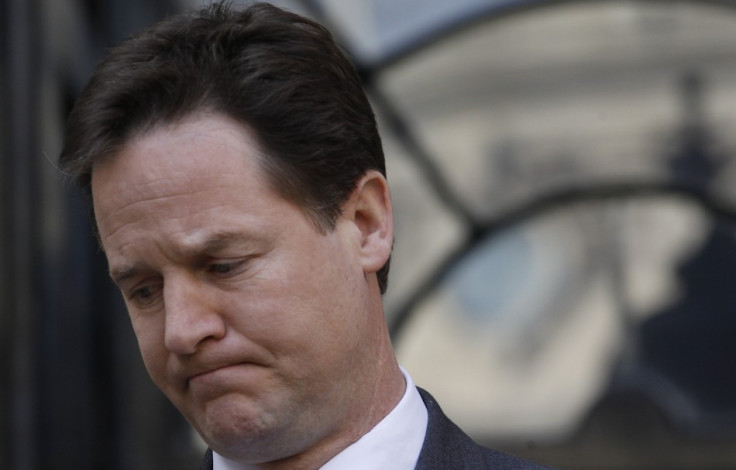House of Lords Debate: Lib Dem Reforms Doomed to Fail?

The Liberal Democrats' hopes for reforms to the House of Lords appear look likely to fall flat as Conservative MPs side with Labour in a move that could cause lasting damage to the coalition.
Members are set to vote on the timetable for the proposed reforms to make the house, which would have 300 members, 80 percent-elected. Elected Lords would serve for non-renewable 15-year terms.
The reforms would mark an important, and rare, coalition victory for the Lib Dems, who have seen their support decimated as they appear to limp along in the Conservatives' wake.
However, it would appear that the reforms have had their wings clipped early, as more than 70 rebel Tories have publicly announced their opposition to the changes.
The MPs have criticised the government's programme motion, which would limit the amount of time for debate on the issue to 10 days and ensure the legislation gets an early green light.
Although those MPs who put their names to the letter might not be enough to swing the vote, it is clear that they are not alone and the coalition could face a public rebellion that could cause lasting damage to any remaining coalition unity.
The changes
The proposed changes to the House of Lords reflect the Lib Dem view, voiced by Clegg in the debate, that it is a "flawed institution" that is free of responsibility to the public.
He claimed reforms of the traditional House of Lords have "always been dogged by those who fear change".
"There are three reasons to vote in favour of the bill and its orderly passage: because we believe in democracy, for the sake of better laws and because reforms cannot be ducked.
"There will be those who are not interested in rational discussion. Those who will oppose Lords reform in whatever form, at whatever time, in whatever century, no matter what commitments their parties have made."
Labour supports the reforms in principle, but appears set on disrupting the timetable simply to wound the coalition.
William Hague, the foreign secretary, told the Today programme that the reforms had the support of the majority of MPs in the Commons.
He said: "This is something supported by most of the Liberal Democrat party and the bulk of the Conservative party and huge numbers of people in principle in the Labour party."
Opposition
Peter Bone, one of the MPs who signed the open letter calling for "full and unrestricted scrutiny" of the bill, told the BBC that the vote would be too close to call.
The MPs who will vote against the government's timetable describe it as "a measure of profound constitutional significance".
Their letter reads: "Over time it [the Lords Bill] will fundamentally change the institutions by which we as a nation are governed. It threatens to pile a constitutional crisis on top of an economic crisis."
Malcolm Rifkind, another MP who signed the letter, told the Commons that the new house would be no more than a "sham democratic chamber" and claimed the bill would "damage the fabric of our government".
Repercussions?
Should the Conservatives lose their grip on the backbenchers and thus lose their chosen timetable for Lords reforms, it would represent a significant blow to the bill and perhaps a fatal one.
It would also be another legislative damp squib for the Lib Dems and widen rifts with their coalition partners.
Richard Reeves, one of Clegg's senior aides, gave the Tories an apparent shot across the bow via the Independent, suggesting that the Lib Dems could feel compelled to do some delaying of their own, putting the brakes on the Tory's planned boundary changes.
The Conservatives are keen to see the changes, which could net them 20 extra seats at the 2015 general election, pushed through as soon as possible.
But Reeves said: "There would be broader consequences for the government's programme, particularly around political and parliamentary reform.
"The idea that failure to deliver a government commitment on Lords would be consequence-free is for the birds."
Although it is unlikely that any clashes resulting from the vote would lead to the coalition breakling down, it could do enough to inexorably widen the rift between two parties that have managed to maintain an unsteady partnership. If the reforms fail, the Lib Dems will have little left to lose.
© Copyright IBTimes 2025. All rights reserved.





















